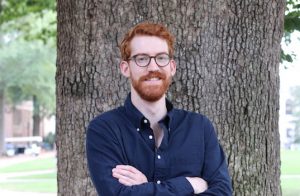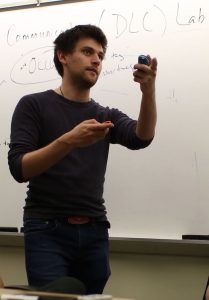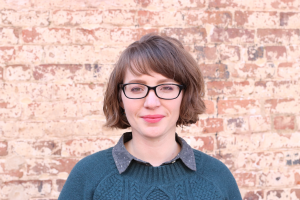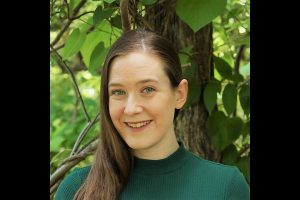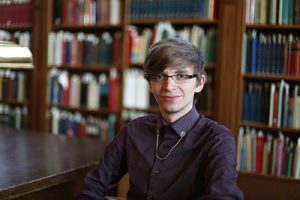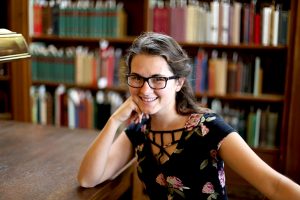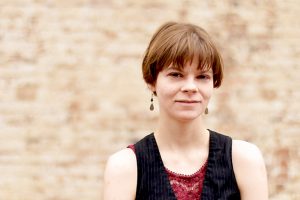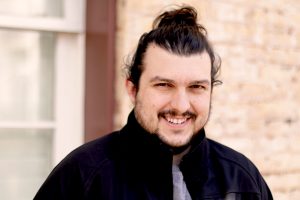Degrees
2017, MA English Literature, University of Virginia
2015, BA English Literature, Bethany College
Bio
Khristian S. Smith studies late medieval and early modern literature, primarily drama placed in its religiopolitical and material contexts. Their research interests include the histories of religion and emotion, occult knowledge, and literary representations of the Devil. Their most recent publication places William Shakespeare’s Romeo and Juliet in its contemporary religious and scientific contexts by exploring the toxicological roles of night, crypts, and demons in the play. They have delivered papers on the Devil and humor in Ben Jonson’s The Devil is an Ass, Paracelsianism in Shakespeare’s A Midsummer Night’s Dream, and medieval theories of predestination in Geoffrey Chaucer’s Troilus and Criseyde.
Smith’s dissertation project, “Horrors of the Early Modern Imagination,” argues that the roots of current understandings of the genre and experience of horror can be traced to an early modern conception of the imagination. By engaging with the early modern imagination’s power to generate, corrupt, lie, and delude, Smith contends we can understand horror, through the imagination, as onto- epistemological: a state of being and knowing. Drawing on the growing critical work on the history of affect, this project examines historical literature and cultural artifacts to comprehend how emotions and experiences have not only evolved over time but also shaped how we think and react today.
Publications:
Peer-Reviewed Articles
Media & Impact
- “Possets, Drugs, and Milky Effects: A Look at Recipes, Shakespeare’s Plays, and Other Historical References,” Shakespeare and Beyond, February 2020.
- “How to Name Medieval Plants,” The Chapel Hill Rare Book Blog, January 2020.
- “Displaying the Body,” The Chapel Hill Rare Book Blog, November 2019.
- “Recognizing Evil: The Devil and His Horns,” The Chapel Hill Rare Book Blog, October 2019.
- “‘The Blood is the Life’: Dracula and 19th-Century Transfusions,” The Chapel Hill Rare Book Blog, September 2019.
Curatorial Work
Awards
- Eliason Early Stages Fellowship, UNC Department of English and Comparative Literature, Summer 2023
- Jerry Leath Mills Research Travel Grant, Studies in Philology, Summer 2022
- ARPA Graduate Degree Completion Grant, UNC Graduate School, Fall 2021
- Eating through the Archives: Interdisciplinary Approaches to Early Modern Foodways Travel Grant, Folger Shakespeare Library, December 2019
- Sara Malone Conference Grant, UNC Medieval and Early Modern Studies, May 2019
- Florence Hoagland Memorial Award for Outstanding Senior English Major, Bethany College Department of Humanities, Spring 2015
- W. F. Kennedy Prize for Outstanding Junior Man, Bethany College, Spring 2014
- Cammie Pendleton Award for Outstanding Junior English Major, BC Department of Humanities, Spring 2014
- Bettie Blanck Travel Award, BC Department of Humanities, Fall 2013
- Cammie Pendleton Award for Outstanding Sophomore English Major, BC Department of Humanities, Spring 2013
